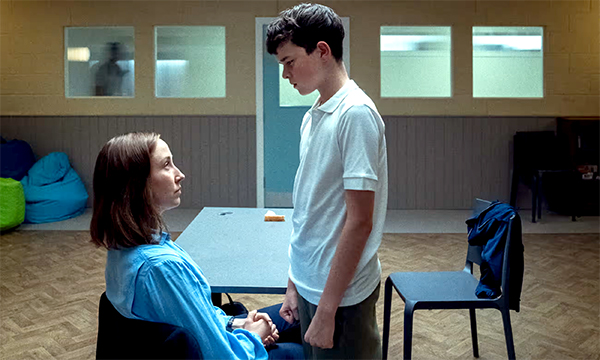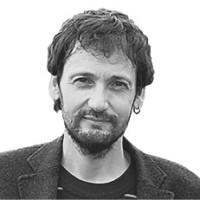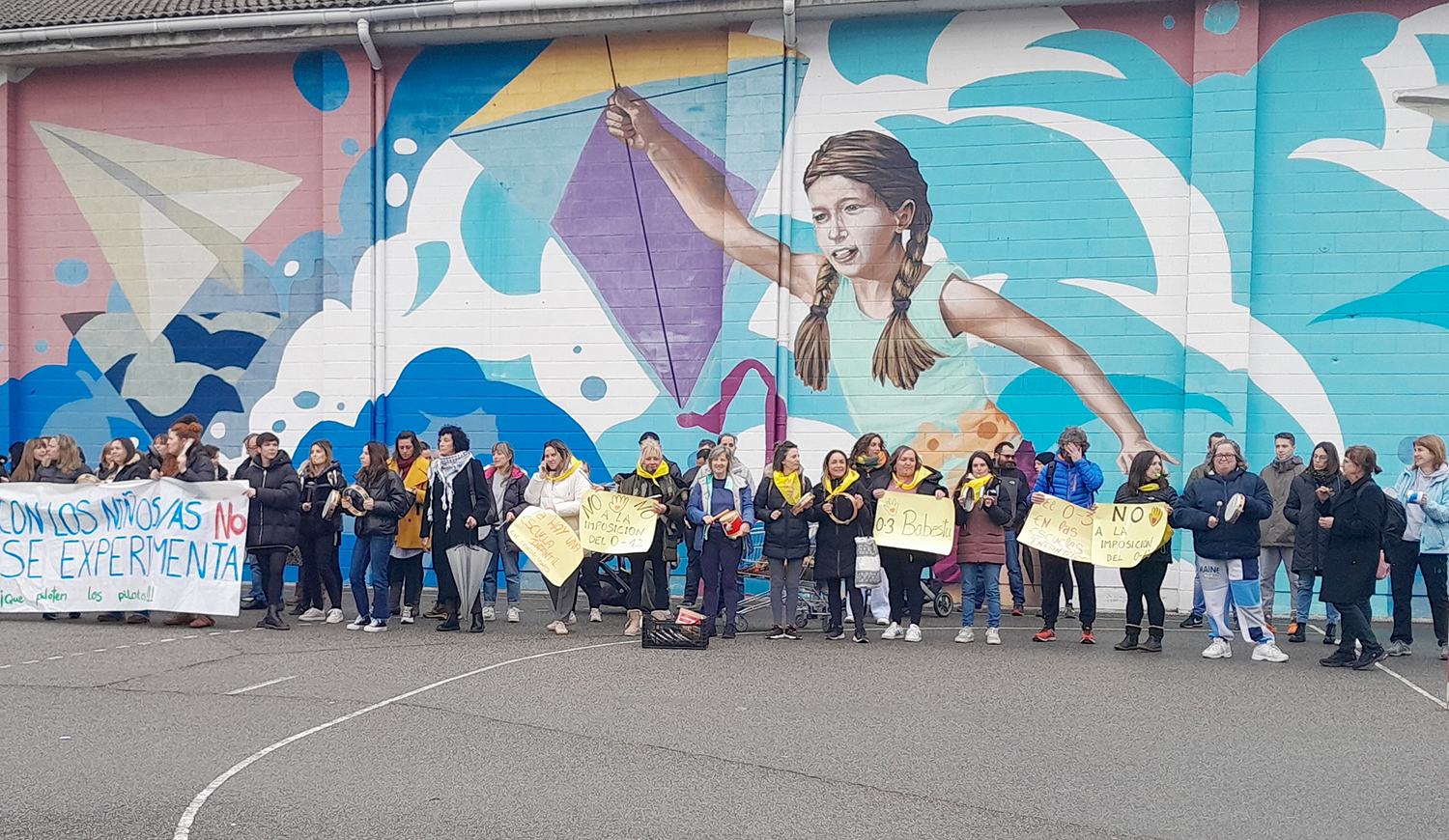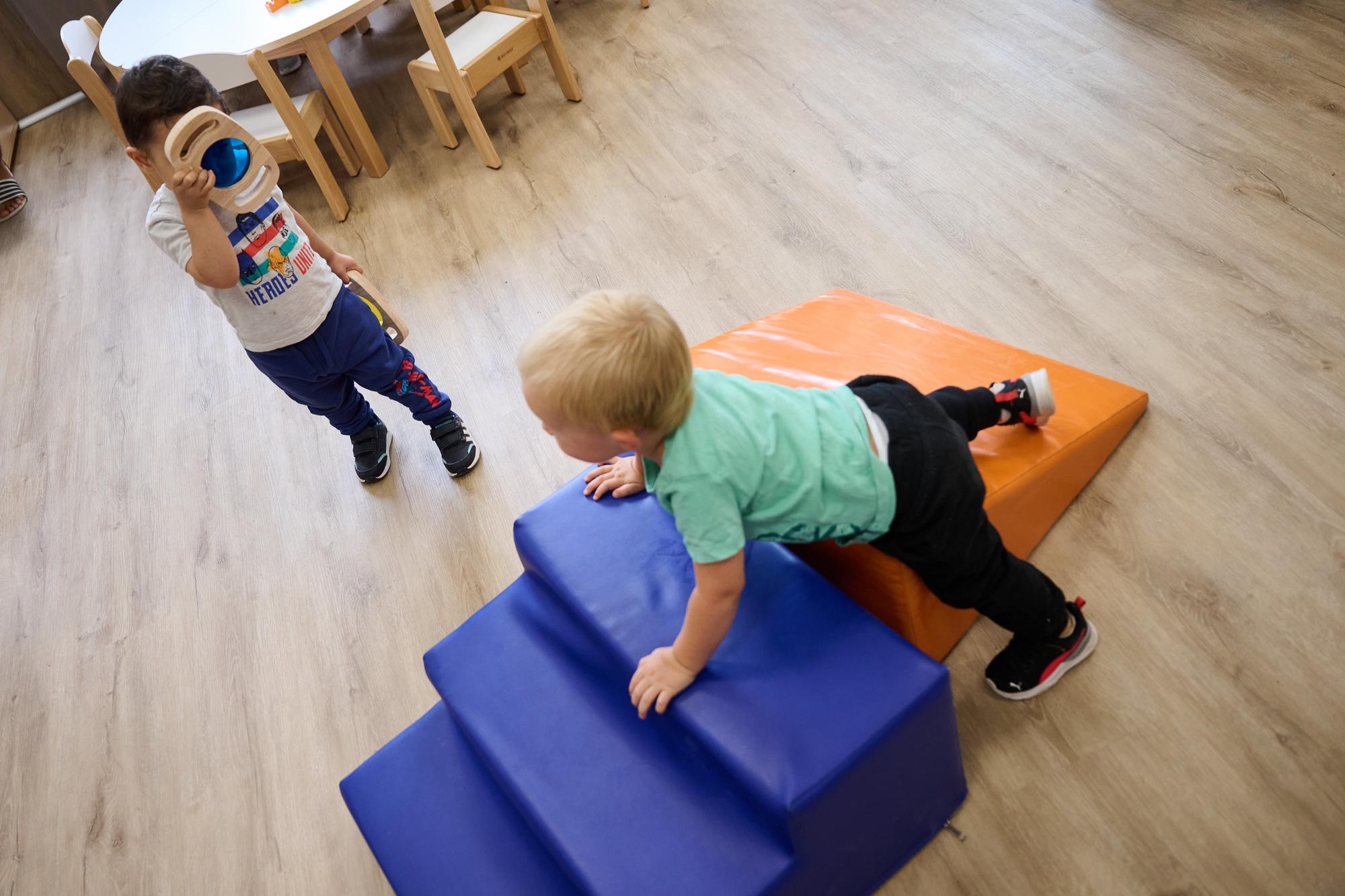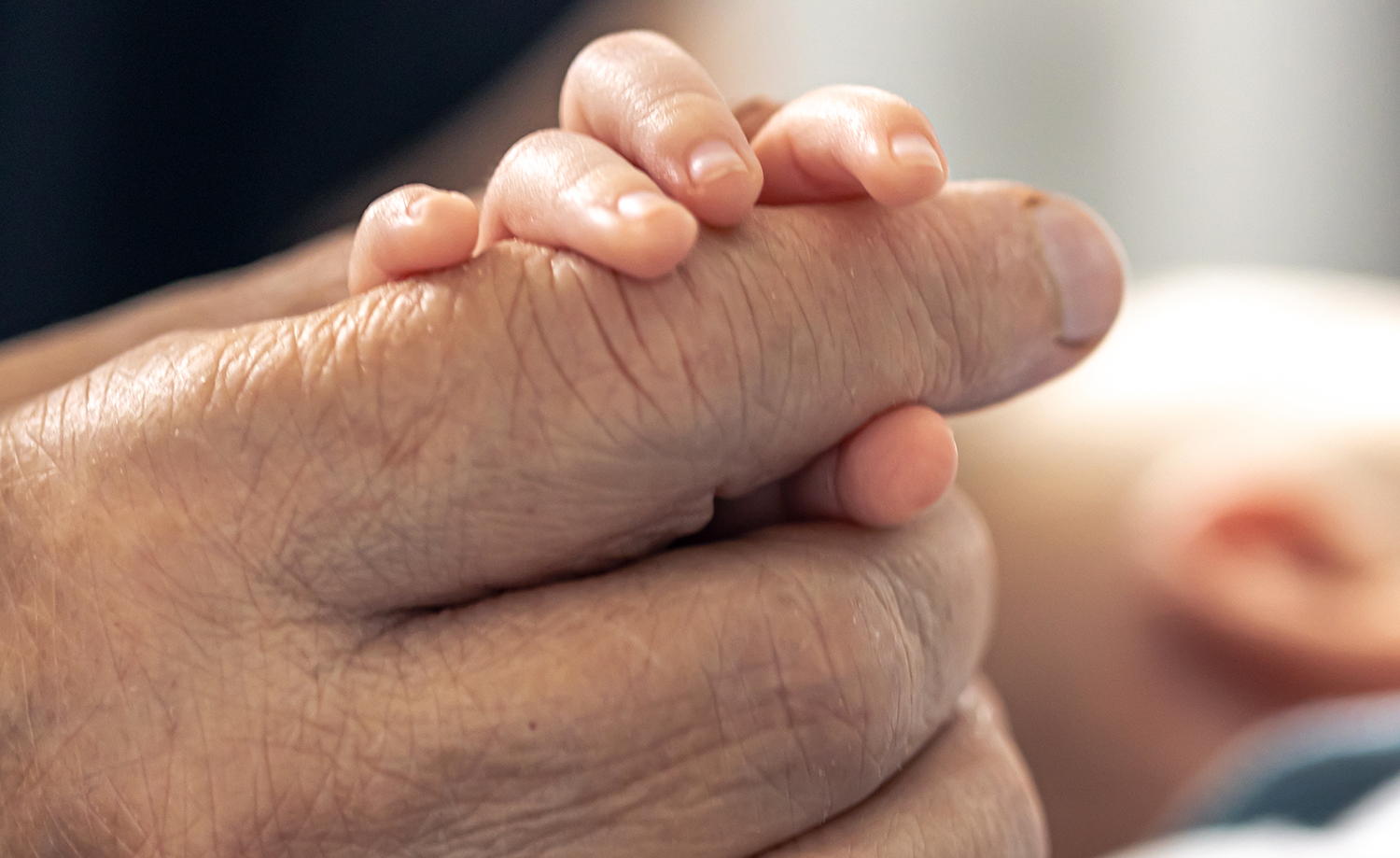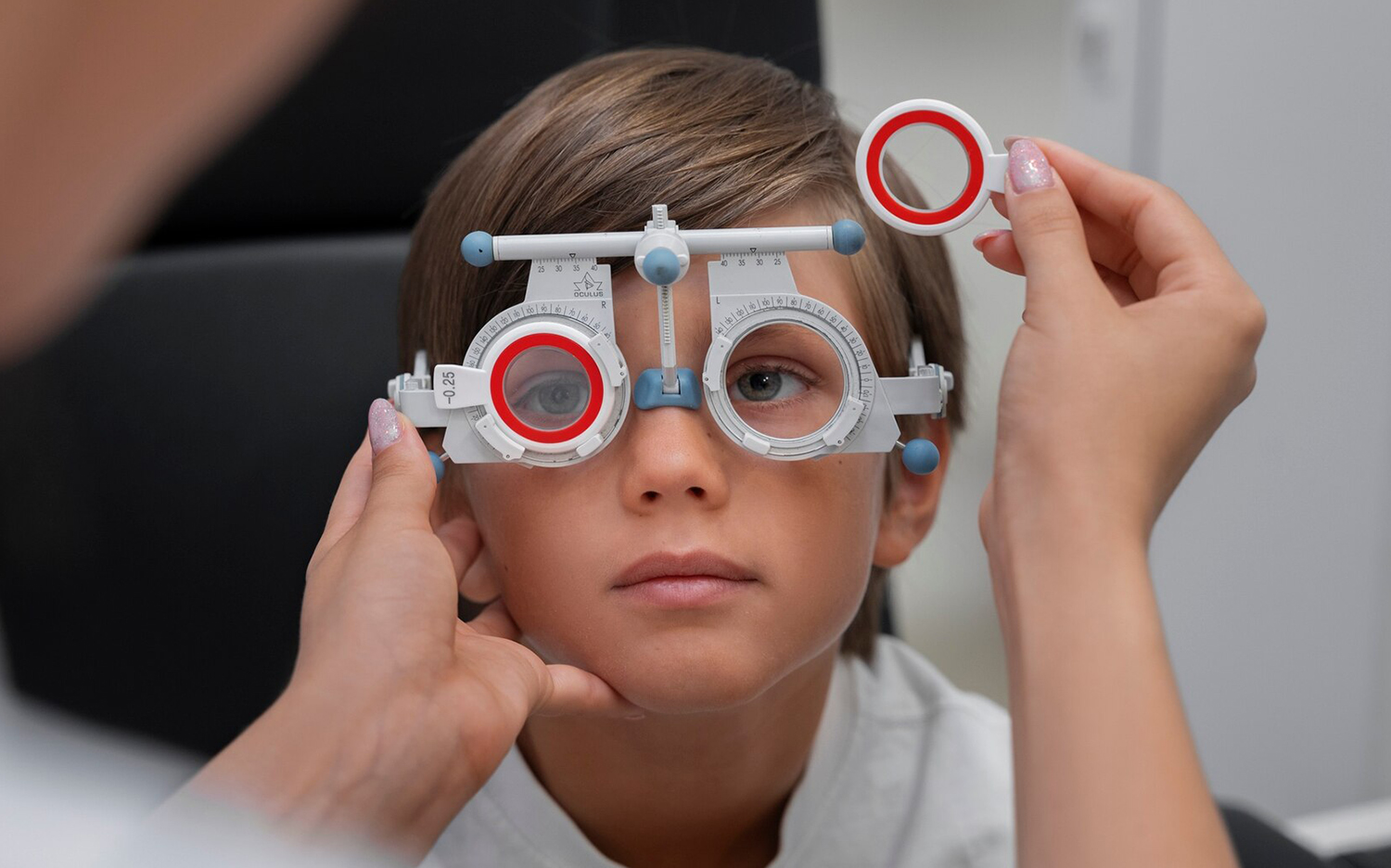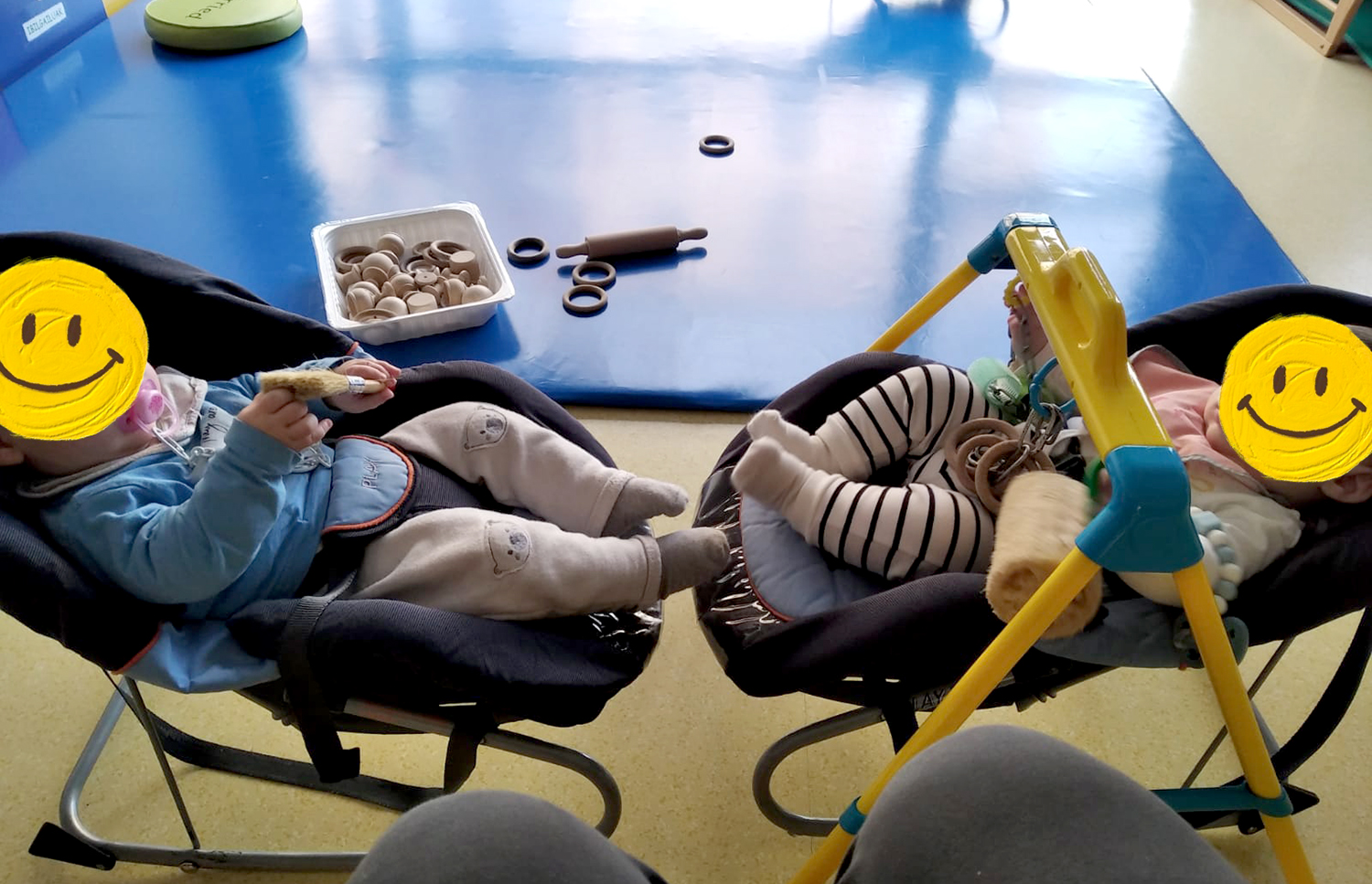Growing up in the tribe
- Two mothers and several people involved in caring for their sons and daughters have gathered at the table at Hernani Feminist Square. Differences, many and varied. However, the starting point is that friends take care of the children of their friends, without family or economic ties.
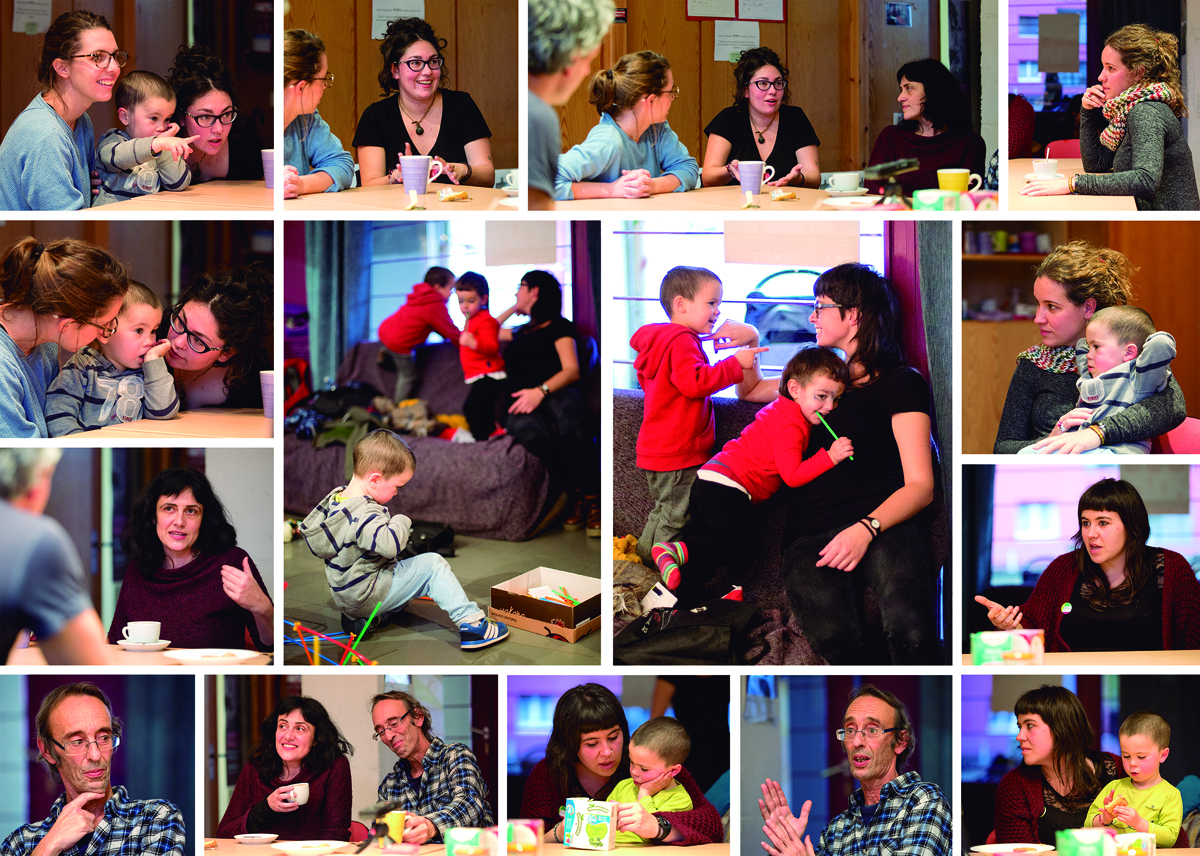
Hernaniarra Itziar Arruarte Santa Kruz is 31 years old and holds a degree in Psychology from the Universidad Complutense. She has wanted to be a “forever” mother, whether or not she has a partner. It was three and a half years since Peru and Liher were born of live twins. The network of friends is its main support for daily life, and three of the strong threads of this network are Maialen Apezetxea Lujanbio, 31, Kattalin Artola Vázquez, 22, and Miren ZubilhghIdarreta, 28.
Irantzu Jauregi Artola is a 44-year-old Andoain girl, mother of Kima and Arai, 5 and 9 years old. The first, Arai, decided to be with a friend because they knew they would manage well, “the father is here and is present. But we're not a couple. Kim's father lives far away, and so in practice, he decided to have a child knowing that he would have to grow without much help from him. The grandmother of the little ones, Irantzu's mother, Arai's father and his friend Gorka Setien Berakoetxea, 59, take over custody with Irantzu.
How do you organize childcare? Irantzu answers “improvising”, “surviving” Itziar. The conversation starts with a shared gutter. The movements, games and laughs of the youngest have created a propitious context.
“We’re a big crew,” Itziar explained, “since they were born I’ve needed a lot of help, and they’ve seen me cry to the two children and go out into the street. They are the first children who have held their arms in the crew and are always ready to help.” Maialen started helping her, worried about her friend's workload. Every Friday he came to his house, “to spend the night and help with the children.” Look, she decided to see her and offer herself. “And then we’ve been adapting to the contemporary, we started with more intensity, now less. We go on vacation together. And we stayed when Itziar plays or has something to do with it, but we don’t have a day a week set.” Kattalin spent a month caring for twins for money, “but from there no longer, because you fall in love with the children and...” Today it is he who asks Itziar to leave the children regularly. “I live with my parents and come home many times, all three of us sleep in the same bed, and my parents are also in love.”
Gorka has gradually been involved in the lives and needs of Irantzu's daughters. “Irantzu and I are friends. When he had the first one, we talked and I helped him a little bit with the child.” By the time the second came, he was already “hooked.” When Kimaz gave birth at home, Gorka Irantzu was very close to him. Today, “I have a two-hour contract to care for and feed the two children. And from there all the hours, which are enough, I help him as a friend, I can spend the day with the children.” Sleep three days a week at the three. In addition to childcare, it also deals with household tasks, such as shopping or cleaning. "In other words, you can't pay for money," Irantzu stressed.
Political choice or need?
From the political choice and from the need, Irantzu and Itziar have built a surveillance system that responds to both ways. Itziar spoke to his family earlier. “I asked for help at home and they told me yes.” She's supported by her mother, but she's more limited than I thought at the beginning. The sisters also have more children, 24 hours a day. She regrets not having spoken before and more clearly with her friends. Irantzu spoke to Gorka from the beginning. The mother is involved or not in care has an old knot: “Our mother is very pueril and they are her only grandchildren. At first he said ‘no grandmother’, because it seemed to me to be very clear. And then I thought about ‘and why not grandmother!’. I've always had a conflict. What makes me think, why is it more progressive to organize with friends than with grandma if her choice is to participate so actively in the care of children?”
The starting point was the caregivers' desire to accompany their partner. However, they have underlined the evolution. On the one hand, work also becomes a pleasure and a place for love, until the presence of children in one's own life becomes a necessity. On the other hand, the experiences have politicized the paths themselves. Passing through the body what ideologically they already considered political gives a new being to ideas. Gorka says: "It wasn't my political choice, but it's ended up being so. I've had an evolution, you realize a lot of things in care and at home work. For example, it is not possible that this work is not remunerated. Because it’s a job, and the chiringuito works because it’s free.”
Trust is the basis of this more rounded care
Trust is the basis of this more rounded care. Everyone hangs it in different directions and senses. The mothers' total confidence in the criteria of their friends and friends, both what they receive from their mothers, and what they have taken with the time necessary to make their own decisions. Friendship and voluntary help are the fuel of care, not money. This helps to question the family model and to question the hierarchy of caring parents. For the children they care for, Miren and Maialen are “aunts”, Gorka, “friend” (word invented by children).
Distorted photo
One of the four guards is a man in the report. Photography not adjusted to reality. If surveillance networks are scarce, men are less numerous. Care is a naturalized space for people educated as women. Despite having studied in education, “I don’t know any man who has worked as a caregiver as a source of income,” says Kattalin. And Maialen added: “And they’re not willing to do that job for free. We are used to working ‘with love’, because we are in love with children...”.
If surveillance networks are scarce, men are less numerous.
Rarely, and when exercising, collect extra balloons from everywhere. At the level of visibility, recognition... According to Itziar, “there’s a plus for men because they’re doing something that doesn’t suit them.” Irantzu misses her mother's words: “‘There is nothing better than Gorka’. If I were a woman I wouldn’t say the same, because I’m a man and I’m dedicated to care.” Look, he believes that his crew has recognition, “but they would tell us that we are boys, ‘jo, what are involved, and what good guys and...’”. The sentence was completed by Maialen: “They would consider us as feminist boys.” However, the same work does not turn a woman into a feminist.
For the tribe
In favour of surveillance networks, we have to bet on the tribe. Everyone is clear about that. Not only for children, but also for older people or people with functional diversity. For mutual care in general. “They may be one way or another, but we need networks,” says Irantzu. As Maialen added, “although we are convinced that we are very autonomous, we are interdependent”. “We were born to be from Altza,” Gorka recalled the verse of Maialen Lujanbio, “and the left, without realizing all this.”
In favour of surveillance networks, we have to bet on the tribe. Not only for children, but also for older people or people with functional diversity. For mutual care
The difficulties, however, are not few. Our customs do not help. Taking time to care for the children of friends is an option. And the same choice doesn't have anybody. Maialen, Miren, Kattalin and Gorka, for example, have no children of their own or anyone's custody. The social model is also in the opposite direction: natural communities are increasingly scarce, we spend too many hours on employment, we live children as private property, precariousness at work has become more acute, mobility has multiplied and we are all “temporarily”. The models of domestic life, and the small and isolated units of life that we produce in them, structurally limit the choice of tribe. In many ways, the interlocutors have considered that rather than “going” to the tribe, “we have to return”. That networks and community have more for the old than for the innovative.
The benefits, on the other hand, are seen as more than difficulties. We often say “single mother” to those who, like Itziar and Irantzu, have decided to have their children without a partner. An inappropriate term, no doubt: both have seen women from many couples much more alone in caring tasks, drowned. The sheer care of the little ones benefits everyone. Children have more models in their environment and adults can devote more time to boys and girls. They both enjoy and learn more. Shared and grid care is the ideal floor for a happier and fairer life model.
Itziar and Irantzu break the care model and many other maternity routines. But surveillance networks are interesting and feasible for anyone. “They should also form ‘normal’ heterosexual couples,” Kattalin tells us. Here is the invitation of the sextet and here is Itziar's last recommendation, from his lived experiences: “Speak clearly, beforehand, with all those who are going to participate in the network. How we are going to build the network, what each of us will do within it.”
Is it important to use a language correctly? To what extent is it so necessary to master grammar or to have a broad vocabulary? I’ve always heard the importance of language, but after thinking about it, I came to a conclusion. Thinking often involves this; reaching some... [+]
Haurtzaroaren amaiera eleberri distopikoa idatzi zuen Arthur Clarkek, 1953. urtean: jolasteari utzi dion gizarte baten deskribapena. Eta ez al da bereziki haurtzaroa jolasteko garaia? Jolasteko, harritzeko, ikusmiratzeko eta galdera biziak egiteko unea. Ulertzeko tartea zabalik... [+]
Eskolaz kanpoko jardueren eskaintza zabala egiten duten ikastetxeen aldean, beste askok ez du horretarako aukerarik; eta eskola bereko ikasleen artean ere, denek ezin dute ekintzetan parte hartu, baliabide ekonomikoek baldintzatuta. Esku hartzeko dei egin diete instituzioei:... [+]
Haurreskolara beharrean, 0-3 urte bitarteko umea zuzenean ikastetxera bidaltzea, Haur eta Lehen Hezkuntza osoa (12 urtera arte) hartzen dituen zentro berera. Hori da Nafarroako Hezkuntza Sailak Burlatako Hilarion Eslava ikastetxean martxan jarriko duen proiektu pilotua eta... [+]
Iruñeko haur eskoletako zuzendariek, EH Bildu, Geroa Bai, Zurekin Nafarroa eta PSNren arteko akordioa kritikatu dute. “Murgiltze ereduaren alde egin dugu beti, baina inoiz ez da gure iritzia kontutan hartzen” salatu du Euskalerria Irratian, Garikoitz Torregrosa... [+]
Batez beste, adinez gero eta nagusiago bilakatzen gara ama eta aita, hala diote datuek. Biologiari aurre hartu diote ugalketa teknikek, baina guraso zahar ugariko gizartea izatearen inguruan gogoetatzea falta dela iritzi dionik bada.
Miopia gero eta gehiago eta gero eta lehenago ari da garatzen, eta horren arriskua da dioptriak gehitzen joatea eta helduaroan begiari lotutako hainbat gaitz izateko aukerak dezente handitzea. “Eguzki-argia jasotzea inportantea da, eta denbora asko ez igarotzea oso gertu... [+]












